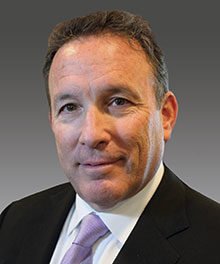Celebrating Black History Month

One of the great things about entrepreneurship is that it has been a lot more open to people from diverse backgrounds than many other fields. With Black History Month here, it’s the perfect time to spotlight the great Black entrepreneurs who have contributed to our economy.
One of the best known is Madam C.J. Walker—one of the first self-made female millionaires in the U.S., who paved the way for the many Black-owned independent beauty brands in the country with her hair care company, Madam C.J. Walker Company. But there are many more Black entrepreneurs who have made a mark on the business world, like Maggie Lena Walker, the first Black woman to charter a bank, and John H. Johnson, who published Ebony and Jet.
In more recent times, there are even more great stories of innovation from the Black community. There are media moguls Oprah Winfrey and Robert L. Johnson (BET Network), FUBU clothing line creator and Shark Tank investor Daymond John, recording entrepreneur and performer Sean ‘Diddy’ Combs, hip-hop star and Bacardi partner Jay-Z, ActOne Group employment agency founder and CEO Janice Bryant Howroyd, model and production company CEO Tyra Banks, and singer and beauty entrepreneur/recording star Rihanna—to name only a few.
That said, Black entrepreneurs still face a big challenge: access to capital. As SBA Administrator Isabella Guzman pointed out this week, lack of access to capital is slowing the rate at which minority-owned businesses could be creating jobs, costing the U.S. economy hundreds of millions of dollars in potential economic output. There are currently 3.1 million Black-owned non-employer businesses—those that don’t run payroll—but only 134,567 Black-owned employer firms, according to the U.S. Census Bureau. Imagine if all of them created even one job.
At the moment, many of these businesses still lack the strong banking relationships they need to maintain payroll through good times and bad—and grow into substantial small businesses or enter the middle-market. McKinsey found that only 47% of Black owners’ loan requests were approved, compared to 75% of white owners. Not having the proper funds may be contributing to higher failure rates: Only 4% of Black-owned businesses are still operating after 3.5 years, compared to 55.5% of all businesses, according to McKinsey’s research.
Clearly, there is still a lot of work to be done to create a level playing field. Fortunately, it does seem like more business leaders are paying attention to these challenges than ever before. There are many more loan and grant programs for underrepresented founders today than before the pandemic, with many emerging from the private sector. McKinsey, for one, has launched Next 1B, an accelerator for Black-owned consumer and retail brands, and Harvard Business School has even introduced a class called “Scaling Minority Businesses,” to help address the needs of Black-owned businesses as they grow.
And of course there are grassroots efforts, as well. With more consumers looking to support minority-owned businesses, a growing number of brands are adding labels that say “Black-owned,” making it easier for consumers to vote with their dollars.
In the meantime, in true entrepreneurial fashion, many Black founders are finding ways to tunnel over and around the obstacles that confront them. Fortune just featured an interview with Wemimo Abbey, who turned his company Esusu—which helps lower-income Americans build credit—into a unicorn, after being turned down by 326 investors (he was counting!). Those investors must be kicking themselves now.
Marcum Foundation has contributed to UNICEF for children and families impacted by the devastating earthquakes in Turkey and Syria, and is now campaigning to raise additional funds from Firm associates, clients, vendors and friends. All donations will be matched dollar-for-dollar. Please join us in delivering critical support to children in need, by donating here. THANK YOU very much in advance for your generosity!
On a separate note, as this posts I’m on my way to JFK to board a flight to Phoenix for Super Bowl LVII. Super Bowl has become an annual Weiner family tradition, with this year 3 of my children coming with me. And as this column is about Black History Month, it should be noted that for the first time in Super Bowl history, there will be black quarterbacks starting for both teams, another moment in Black history we will witness in real time.
Have a great weekend everyone!
